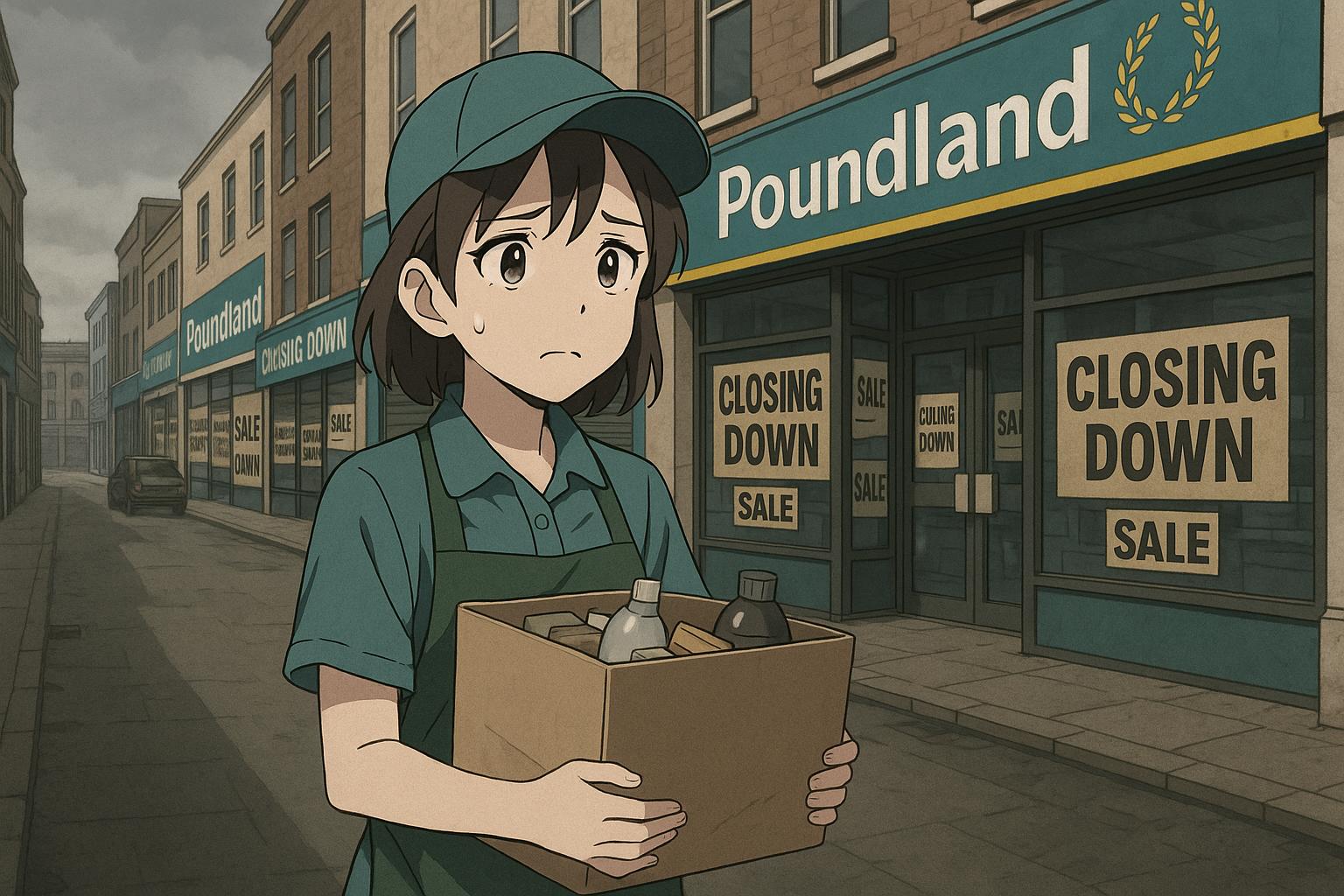As negotiations regarding the sale of Poundland intensify, reports indicate that hundreds of stores within the 825-strong chain are at risk of closure. Since being put up for sale in March, Poundland's future has become increasingly uncertain, with bids expected early this week. The potential deal could lead to significant job losses, affecting thousands of employees as the company grapples with mounting pressures in the UK retail landscape.
Poundland, traditionally known for its £1 price tag, has been struggling to maintain profitability amid rising operational costs and stiff competition from rivals such as Tesco, Aldi, and Lidl. The firm’s management has identified up to 200 underperforming outlets as candidates for closure, reflecting a strategic pivot aimed at streamlining operations. The Times has suggested that the acquisition process might see the chain sold for as little as £1, underscoring the dire state of affairs within the business.
The circumstances surrounding Poundland’s potential sale can be attributed to several broader economic factors. The Pepco Group, which owns Poundland, has faced a considerable financial setback, posting a net loss of €662 million after taking a €775 million impairment charge due to poor performance. In light of these challenges, Pepco is shifting its focus away from fast-moving consumer goods in favour of more lucrative clothing and general merchandise. According to CEO Stephan Borchert, the company is actively exploring all strategic options, including the separation of Poundland from the group.
Financial experts have pointed to rising employer taxes and increased National Insurance contributions, which are set to further squeeze margins. This coincides with a general downturn in consumer spending as households grapple with soaring costs of living, prompting budget retailers to reassess their strategies. The demand for non-essential items has declined sharply, leaving stores with little room to manoeuvre financially. Russ Mould, an investment director at AJ Bell, elaborated on this sentiment, noting that "Poundland has come to symbolise the forgotten wasteland of UK high streets, full of copycat outlets."
Adding complexity to the sale process is the role of recent leadership changes at Poundland. Barry Williams, a former managing director, has returned to the board, tasked with implementing a turnaround strategy aimed at revitalising the brand. In an official statement, a Pepco spokesperson outlined the company's objective to simplify its business model while focusing on core strengths and a clearer pricing strategy to regain customer loyalty.
The anticipated closure of around 200 stores not only reflects Poundland's operational struggles but also signifies a troubling trend within the UK retail sector, where budget chains are increasingly squeezed by rising competition and costs. Previous anecdotes of similar chains, such as the closure of Poundworld’s 350 stores in 2018, serve as cautionary tales. Industry analysts are closely watching whether potential buyers, including noted interest from restructuring specialists like Hilco Capital and Modella Capital, will emerge with robust plans to salvage the brand.
As the bids for Poundland loom, the ramifications are likely to reverberate across the retail landscape, raising questions about the viability of budget retailing in a climate characterised by financial strain and evolving consumer expectations. With its financial future hanging in the balance, Poundland’s ability to navigate this challenging environment will be crucial in determining its legacy and ongoing relevance to shoppers across the UK and Ireland.
Reference Map
- Paragraph 1: [1]
- Paragraph 2: [1], [6]
- Paragraph 3: [2], [3], [4]
- Paragraph 4: [4], [5], [6]
- Paragraph 5: [3], [4], [5]
- Paragraph 6: [3], [6]
- Paragraph 7: [1], [6]
Source: Noah Wire Services
